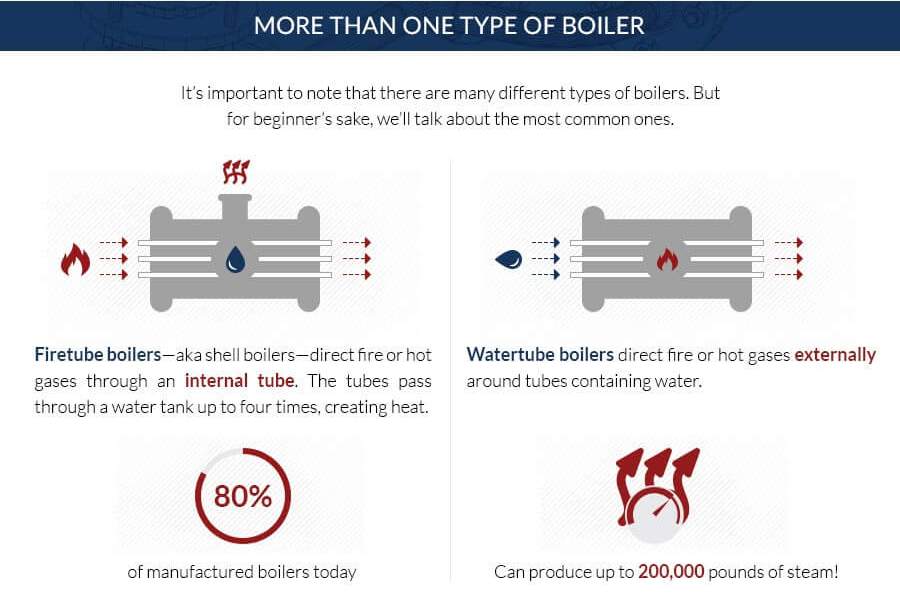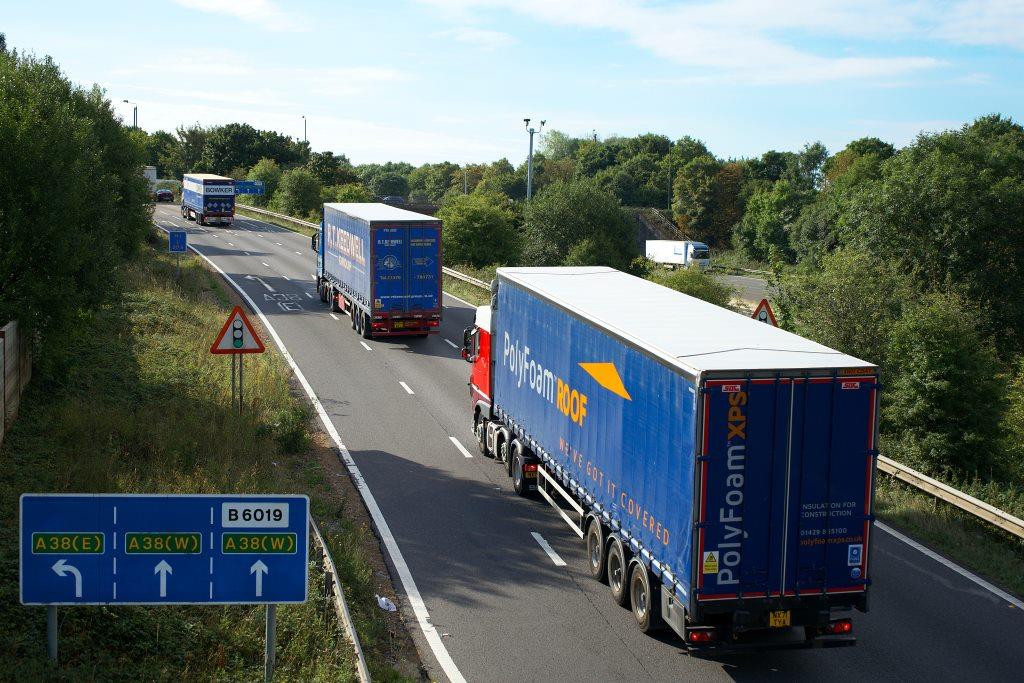The team at Manley’s Boiler, Inc. does more than install, repair, and maintain boilers—we also strive to educate customers on boiler safety and function. Often, industrial boiler vocabulary is full of hard-to-understand terms and industry jargon. If you want a simple, user-friendly way to understand boilers, read on for a guide that demystifies some of the most important aspects of boiler operation.
What Is a Boiler?
At its most basic level, a boiler is a vessel that creates heat by turning the water it contains into steam. Boilers use a process known as combustion to turn fuel into heat. The most common fuels are oil, gas, and coal.
Boiler Types: Firetube and Watertube Boilers
Firetube boilers, also known as shell boilers, direct fire or hot gases through a hollow shell that’s surrounded by water. The hot gases or fire pass internally through tubes in the water several times to heat it up and produce steam. About 80% of boilers made today are firetube boilers, as they are incredibly efficient and can create up to 250,000 pounds of steam.
While a firetube boiler runs the heat internally through the water, watertube boilers direct heat externally around the tubes containing water. For best functionality, most watertube boilers are designed with tubes built in a vertical condition. These boilers have two drums that store water and heating tubes, and are the main location for the creation of steam. The average watertube boiler can produce up to 200,000 pounds of steam.
How a Boiler Operates
Whether you want to heat or cool your environment, thermostats and faucets use a similar process. Once you turn on the thermostat or the faucet, an electric switch indicates that gas or heat should begin to flow through the boiler. Through a series of jets that bring the gas to the combustion chamber, the boiler heats up the water. As the water temperature rises, it heats the coiled pipes throughout the system and cause them to emit warmth. Once the water cools, it heads back to the boiler to be reheated in the same cyclical process.
Combi and Open-Vented Boilers
When you consider a boiler as a big tank of water the reheats constantly to provide heat throughout a building, you’re missing one more vital point—there are generally two ways that boilers ensure heat! Some boilers store water and heat it on demand, like combi-boilers, while others maintain the heated temperature of the water and dispense it where it’s needed, like open-vented boilers.

[box title=”Getting Professional Service” border_width=”1″ border_style=”solid” align=”center”]Now that you know a little about boiler terminology and function, you can better understand why proper boiler maintenance is important. When it comes to for you to ensure optimal boiler function, choose a professional company with decades of boiler service, installation, and repair experience. Choose Manley’s Boiler, Inc.[/box]
Latest posts by Hector Harriman (see all)
- Boilers & Central Heating Explained [Infographic] - January 14, 2017











![Building a network infrastructure [infographic]](https://thelocalbrand.com/wp-content/uploads/2016/03/Building-a-network-infrastructure-infographic-150x150.jpg)



